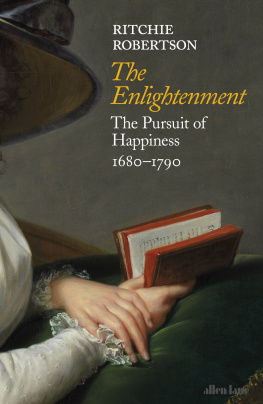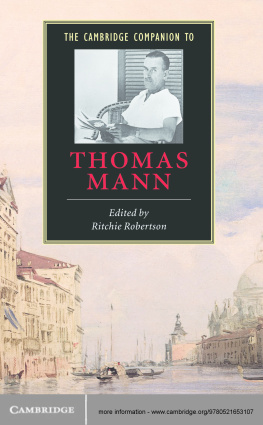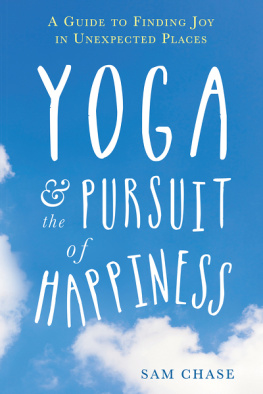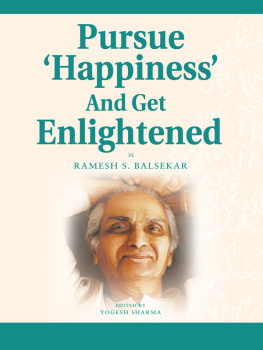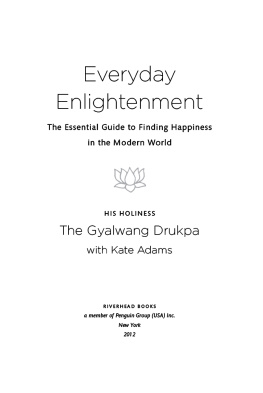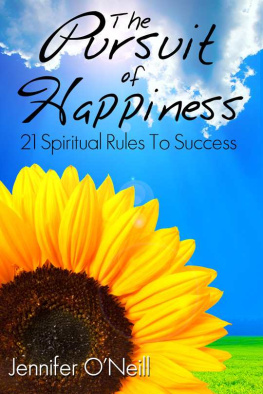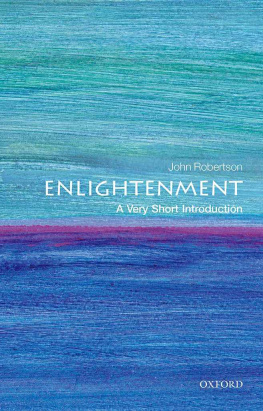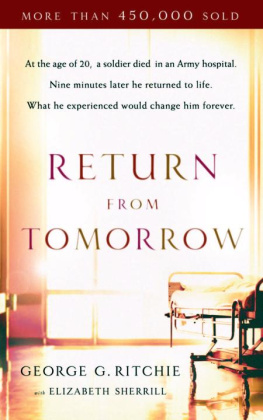Ritchie Robertson - The Enlightenment The Pursuit of Happiness 1680-1790
Here you can read online Ritchie Robertson - The Enlightenment The Pursuit of Happiness 1680-1790 full text of the book (entire story) in english for free. Download pdf and epub, get meaning, cover and reviews about this ebook. year: 2020, publisher: Penguin Books Ltd, genre: Religion. Description of the work, (preface) as well as reviews are available. Best literature library LitArk.com created for fans of good reading and offers a wide selection of genres:
Romance novel
Science fiction
Adventure
Detective
Science
History
Home and family
Prose
Art
Politics
Computer
Non-fiction
Religion
Business
Children
Humor
Choose a favorite category and find really read worthwhile books. Enjoy immersion in the world of imagination, feel the emotions of the characters or learn something new for yourself, make an fascinating discovery.
- Book:The Enlightenment The Pursuit of Happiness 1680-1790
- Author:
- Publisher:Penguin Books Ltd
- Genre:
- Year:2020
- Rating:5 / 5
- Favourites:Add to favourites
- Your mark:
- 100
- 1
- 2
- 3
- 4
- 5
The Enlightenment The Pursuit of Happiness 1680-1790: summary, description and annotation
We offer to read an annotation, description, summary or preface (depends on what the author of the book "The Enlightenment The Pursuit of Happiness 1680-1790" wrote himself). If you haven't found the necessary information about the book — write in the comments, we will try to find it.
The Enlightenment The Pursuit of Happiness 1680-1790 — read online for free the complete book (whole text) full work
Below is the text of the book, divided by pages. System saving the place of the last page read, allows you to conveniently read the book "The Enlightenment The Pursuit of Happiness 1680-1790" online for free, without having to search again every time where you left off. Put a bookmark, and you can go to the page where you finished reading at any time.
Font size:
Interval:
Bookmark:

PENGUIN BOOKS
UK | USA | Canada | Ireland | Australia
New Zealand | India | South Africa
Penguin Books is part of the Penguin Random House group of companies whose addresses can be found at global.penguinrandomhouse.com.

First published by Allen Lane in 2020
Copyright Ritchie Robertson, 2020
The moral right of the author has been asserted
Cover: Detail from a portrait of the Comtesse de la Chtre, by Elisabeth Vige Le Brun, 1789, in the Metropolitan Museum of Art, New York
Photograph The MetropolitanMuseum of Art/Art Resource/Scala, Florence
ISBN: 978-0-241-00483-8
This ebook is copyright material and must not be copied, reproduced, transferred, distributed, leased, licensed or publicly performed or used in any way except as specifically permitted in writing by the publishers, as allowed under the terms and conditions under which it was purchased or as strictly permitted by applicable copyright law. Any unauthorized distribution or use of this text may be a direct infringement of the authors and publishers rights and those responsible may be liable in law accordingly.
To Katharine
John Locke, Essay concerning Human Understanding (1689). Public domain.
Anthony Ashley-Cooper, 3rd Earl of Shaftesbury, Characteristicks of Men, Manners, Opinions, Times (1711). Public domain.
Thomas Sprat, The History of the Royal Society (1657). Public domain.
Isaac Newton, Philosophi naturalis principia mathematica (1687). British Library, London, UK/ copyright British Library Board. All Rights Reserved/Bridgeman Images.
Pierre Bayle, Dictionaire historique et critique (1696). Bibliothque nationale de France.
Gottfried Wilhelm Leibniz, Essais de Thodice sur la bont de Dieu, la libert de lhomme et lorigine du mal (1710). Bibliothque nationale de France.
Immanuel Kant, Allgemeine Naturgeschichte und Theorie des Himmels (1755). German Text Archive, Berlin-Brandenburg Academy of Sciences. Lower Saxony State and University Library Gttingen.
Baruch Spinoza, Tractatus theologico-politicus (1670). National Library of the Netherlands. 507 E 19 [1].
Voltaire, Essai sur les murs (1756). Public domain.
Adam Smith, The Theory of Moral Sentiments (1759). By permission of University of Glasgow Library, Archives & Special Collections.
David Hume, A Treatise of Human Nature (1739). Photograph courtesy of Sothebys.
Denis Diderot, Lettre sur les aveugles (1759). Bibliothque nationale de France.
Samuel Richardson, Clarissa (17489). Public domain.
Jean-Jacques Rousseau, Julie ou la nouvelle Hlose (1761). Courtesy of the Thomas Fisher Rare Book Library, University of Toronto.
Johann Wolfgang von Goethe, Die Leiden des jungen Werthers (1774). Public domain.
Denis Diderot et al., Encyclopdie ou dictionnaire raisonn des sciences, des arts et des mtiers (1751). Public domain.
Cesare Beccaria, Dei delitti e delle pene (1766). Copyright 2020 White Images/Scala, Florence.
Johann Winckelmann, History of Ancient Art (1764). Public domain.
Immanuel Kant, Kritik der Urteilskraft (1790). Zentral- und Landesbibliothek Berlin.
Charles de Secondat, Baron de Montesquieu, De lEsprit des lois (1748). Bibliothque nationale de France.
Adam Smith, The Wealth of Nations (1776). Bonhams.
David Hume, The History of Great Britain, containing the reigns of James I and Charles I (1754). National Library of Scotland. C.31.a.
Catharine Macaulay, The History of England from the Accession of James I to that of the Brunswick Line (1763). Butler Library, Columbia University in the City of New York.
Edward Gibbon, The History of the Decline and Fall of the Roman Empire (1776). Photograph courtesy of Sothebys.
Lady Mary Wortley Montagu, Letters of the Right Honourable Lady M[ar]y W[ortle]y M[ontagu]e, written during her travels in Europe, Asia, and Africa to persons of distinction (1763). The Womens Library. London School of Economics. 910.40924 WOR.
Georg Forster, A Voyage round the World (1777). National Library of Australia.
John Locke, Two Treatises of Government (1690). Rare Book and Special Collections Division, Library of Congress [38.1].
Jean-Jacques Rousseau, Du Contract social (1762). Public domain.
Historians often claim that the period they are studying or writing about is important for the present, but it is undeniable that the Enlightenment has a particularly urgent message for our time. Opponents of tyranny, injustice and superstition often appeal to the values of the Enlightenment. With the definite article, the Enlightenment refers to a historical period, which for the purposes of this book runs from about 1680 to about 1790. Within this, the Enlightenment stands for the endeavours of thinkers, writers and practical administrators in many countries to increase the well-being of humanity, and to do so by the process called (without the article) enlightenment. For them, to enlighten humanity is to clear away the false beliefs which have blinded people to their own interests; to oppose the power of institutions, especially the organized Churches, which have encouraged such blindness; to arrive at a true understanding of human nature, and of the political and economic societies in which people live; to increase peoples well-being and happiness; and to do so by close attention to empirical facts and the use of reason. The conviction animating these endeavours is that the world need not be a vale of tears; the earth is the destined home of humanity, and a place where happiness is attainable.
Recently, the case for the Enlightenment has been put with particular eloquence by the psychologist Steven Pinker and the philosopher Susan Neiman. The era, according to Pinker, was a cornucopia of ideas, some of them contradictory, but four themes tie them together: reason, science, humanism, and progress. By including reverence, perhaps surprisingly, Neiman means that the believers in a rational religion, who formed much of the Enlightenment mainstream, meant to substitute for the questionable God presented by the Churches a conception of divinity that measured up to humanitys moral intuitions.
There is, however, another view of the Enlightenment, which was acknowledged, even when being dismissed, by another defender of the Enlightenment, the late historian Eric Hobsbawm, in a lecture he delivered in 1992:
I believe that one of the few things that stands between us and an accelerated descent into darkness is the set of values inherited from the eighteenth-century Enlightenment. This is not a fashionable view at this moment, when the Enlightenment can be dismissed as anything from superficial and intellectually nave to a conspiracy of dead white men in periwigs to provide the intellectual foundation for Western imperialism. It may or may not be all that, but it is also the only foundation for all the aspirations to build societies fit for all human beings to live in anywhere on this Earth, and for the assertion and defence of their human rights as persons.
Font size:
Interval:
Bookmark:
Similar books «The Enlightenment The Pursuit of Happiness 1680-1790»
Look at similar books to The Enlightenment The Pursuit of Happiness 1680-1790. We have selected literature similar in name and meaning in the hope of providing readers with more options to find new, interesting, not yet read works.
Discussion, reviews of the book The Enlightenment The Pursuit of Happiness 1680-1790 and just readers' own opinions. Leave your comments, write what you think about the work, its meaning or the main characters. Specify what exactly you liked and what you didn't like, and why you think so.

